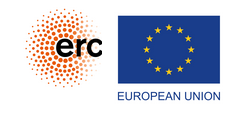Already before WW I, Russian formalists issued a call to view literature on its own terms – principally independent of external factors such as history,psychology or biography. Rejecting the distinction between form and content, the formalists sought an understanding of the internal rules and logic shaping literary works through an analysis of their ‘literariness’ – the types of literary devices that distinguish a literary work from other kinds of texts.
Literature is not a reflection of the world, but a radical act of disrupting the habitual reality and perceptions, of (re)creation of novelty, strangeness and dislocation, of distorting the temporal and causal order of events. Natural language, the formalists argued, is defamiliarised through novel, even shocking use of sound, such as meter and wordplay, and by parodies of literary and linguistic conventions. These efforts were oriented towards and intended to support radical political and social reform.
Formalism flourished in Russia in the 1920s, through the work of Viktor Shklovsky (1893 – 1984), Roman Jakobson (1896 – 1982), Vladimir Propp (1895 – 1970), Boris Eichenbaum (1886 – 1959) and Nikolai Trubetzkoy (1890 – 1938), among others. However, following the publication of Leon Trotsky’s „Literature and Revolution“, the formalist project became subject to increasingly intense criticism from Soviet political authorities. The formalists were accused of ignoring the importance of social factors, and of being a remnant of bourgeois elitism for fostering an understanding of literature perceived as inaccessible to the wider masses. As political conditions worsened, many Russian formalists were forced to emigrate.
The centre of formalist research emigrated to the Czechoslovakia and intergratedintegrated its work with the Prague School and Linguistic Circle. There Vilém Mathesius (1882 – 1945), Jan Mukařovský (1891– 1974), Serghey Kartsevski (1884 – 1955), Réne Wellek (1903 – 1995), Felix Vodicka (1909 – 1974), and others systematised the literary analysis of formalism into structural functionalism – and applied its ideas to linguistics. The school is primarily associated with the founding of structural phonology, which studied language as a synchronic system, constituted by phonological-acoustic functions that operate on the basis of binary oppositions, differentiations, and demarcations among phonemes. The circle’s activities were interrupted by the German occupation of Czechoslovakia in 1939, and the circle finally disbanded in 1952 following the communist coup of 1948.


